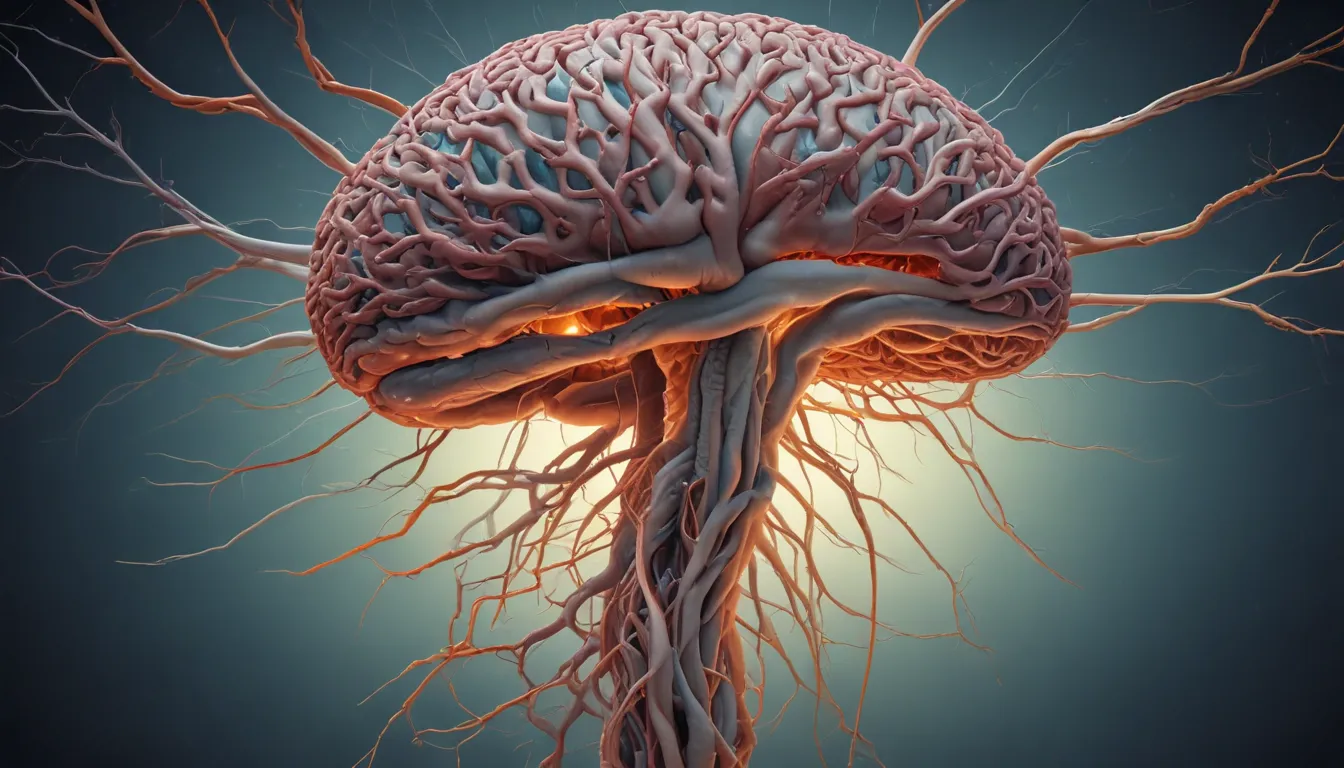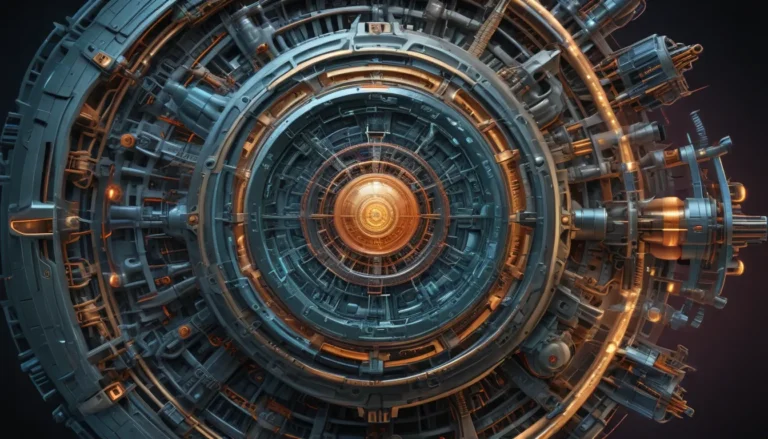A Note About Images: The images used in our articles are for illustration purposes only and may not exactly match the content. They are meant to engage readers, but the text should be relied upon for accurate information.
The human nervous system is a marvel of biology, intricately designed to control and coordinate the functions of the body. From transmitting signals to the brain to regulating organ systems, this complex network governs our every move and thought. In this article, we will delve into 14 astonishing facts about the human nervous system that will leave you amazed by its capabilities. Let’s unravel the mysteries of this extraordinary system that shapes our perception, interpretation, and response to the world around us.
Astonishing Facts About the Human Nervous System
The Intricate Network of Neurons
The human nervous system is composed of billions of neurons, estimated to be around 100 billion in number. These specialized cells transmit electrical signals throughout the body, allowing for seamless communication between different parts and organs.
The Command Center: The Brain
Weighing about 3 pounds, the brain acts as the control center for the entire nervous system. It receives, processes, and interprets information from the body and the external environment, enabling us to think, reason, and make decisions.
The Link: The Spinal Cord
The spinal cord serves as a pathway for transmitting signals between the brain and the body, allowing for voluntary and involuntary movements. It connects the brain to the rest of the body, enabling essential communication and coordination.
Divisions of the Nervous System
The human nervous system has two main divisions: the central nervous system (CNS) and the peripheral nervous system (PNS). The CNS, consisting of the brain and spinal cord, processes and integrates sensory information, while the PNS connects the body to the CNS.
Speed of Signal Transmission
Nerve impulses can travel at incredible speeds of up to 268 miles per hour, facilitating swift communication between the brain and various parts of the body. This rapid transmission allows for immediate responses to stimuli.
Control Over Actions
The human nervous system controls both voluntary and involuntary actions. While voluntary actions require conscious effort and involve decision-making processes in the brain, involuntary actions are regulated automatically, such as digestion or heartbeat.
Oxygen Consumption by the Brain
The brain utilizes about 20% of the body’s total oxygen and blood supply, despite accounting for only 2% of the body’s weight. This significant energy demand is crucial for the proper functioning of the brain, which relies on a constant supply of oxygen and nutrients.
Lifelong Development and Adaptability
Although much brain development occurs during childhood, the human nervous system remains adaptable and capable of forming new connections through neuroplasticity. This ability to change and adapt is essential for learning and memory formation.
Perception of Pain
Pain signals are transmitted through specialized nerves called nociceptors, which detect tissue damage or potential harm. The brain processes these signals, allowing us to experience and respond to pain, a vital function of the human nervous system.
Importance of Memory and Learning
The brain’s ability to form and store memories is crucial for learning and acquiring new knowledge. Different brain regions work together to encode, consolidate, and retrieve information, shaping our ability to remember and recall experiences.
Role in Sense of Touch
The human nervous system is responsible for our sense of touch, with nerve endings in the skin detecting various sensations such as pressure, temperature, and pain. The nervous system processes these signals, enabling us to perceive and respond to tactile stimuli.
Maintaining Balance and Coordination
The vestibular system, located in the inner ear, is crucial for maintaining balance and spatial orientation. It sends signals to the brain, which coordinates muscle movements and helps us maintain an upright posture, illustrating the intricate control provided by the nervous system.
Regulation of Internal Processes
The autonomic nervous system, a division of the PNS, controls involuntary functions such as heart rate, digestion, and breathing, maintaining homeostasis in the body. It continuously monitors and adjusts the body’s internal processes to ensure optimal functioning.
Vulnerability to Disorders
The human nervous system is vulnerable to various disorders and diseases that can significantly impact its functioning, affecting cognition, movement, and overall well-being. Conditions such as Alzheimer’s disease, Parkinson’s disease, multiple sclerosis, and stroke can disrupt the delicate balance of the nervous system.
Unraveling the Marvels of the Human Nervous System
The human nervous system is a fascinating and complex system that governs our every move and thought. From its intricate structure to its remarkable adaptability, this system showcases the wonders of biology. Understanding the complexities of the human nervous system can deepen our appreciation for the intricate workings of our bodies and how we interact with the world around us.
As we continue to uncover new discoveries and insights into the human nervous system, we are constantly amazed by its capabilities and intricacies. The ability to learn, adapt, and respond to stimuli highlights the resilience and flexibility of this remarkable system. By delving into the mysteries of the human nervous system, we can gain a deeper understanding of what it means to be human and appreciate the marvels of our own bodies.
FAQs About the Human Nervous System
-
Main Function of the Human Nervous System: The main function of the human nervous system is to coordinate and control the body’s actions and reactions to stimuli, regulating vital functions such as breathing, heartbeat, and digestion.
-
Number of Neurons in the Human Nervous System: It is estimated that there are around 86 billion neurons in the human nervous system, forming intricate networks that enable the transmission of electrical impulses.
-
Regeneration of the Nervous System: While some parts of the nervous system, such as peripheral nerves, have the potential for partial regeneration, the central nervous system, including the brain and spinal cord, has limited regenerative abilities.
-
Impact of Malfunctions: When the nervous system malfunctions, it can lead to various neurological disorders and conditions such as Alzheimer’s disease, Parkinson’s disease, multiple sclerosis, and stroke, affecting motor functions, cognition, and overall well-being.
-
Effect of Stress: Prolonged or chronic stress can significantly impact the nervous system, disrupting the balance of neurotransmitters and hormones in the body, leading to adverse effects on mental health, cognitive function, and overall well-being.
In Conclusion
The human nervous system is a masterpiece of evolution, intricately designed to control and coordinate the functions of the body. From its complex structure to its remarkable adaptability, this system showcases the wonders of biology and the resilience of the human body. By exploring the astonishing facts about the human nervous system, we gain a deeper appreciation for its capabilities and intricacies, shedding light on the marvels of our own existence.
As we delve deeper into the mysteries of the human nervous system, we are constantly amazed by its complexity and importance in shaping our experiences and interactions with the world. By unraveling the secrets of this extraordinary system, we gain valuable insights into what it means to be human and the beauty of the intricate mechanisms that govern our every move and thought.





